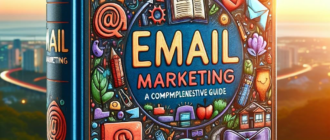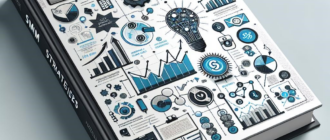In today’s digital landscape‚ marketing strategies have evolved significantly․ One of the most innovative and effective methods that have emerged is messenger marketing․ This approach leverages messaging apps to engage with customers directly‚ offering a personalized experience that traditional marketing methods often lack․
What is Messenger Marketing?
Messenger marketing refers to the use of messaging platforms‚ such as Facebook Messenger‚ WhatsApp‚ and others‚ to communicate with customers․ It allows businesses to send promotional messages‚ answer queries‚ and engage customers in real-time․ This form of direct communication has proven to be highly effective‚ as it meets consumers where they are already spending a significant amount of their time․
Benefits of Messenger Marketing
- High Engagement Rates: Messages sent through platforms like Messenger have higher open and response rates compared to traditional email marketing‚ often exceeding 90%․
- Personalized Communication: Messenger marketing allows businesses to tailor messages based on user behavior and preferences‚ creating a more personalized experience․
- Instant Customer Support: Brands can provide instant replies to customer inquiries‚ enhancing customer satisfaction and loyalty․
- Cost-Effective: Compared to other advertising channels‚ messenger marketing can be more budget-friendly‚ particularly for small businesses․
How to Implement Messenger Marketing
Implementing a successful messenger marketing strategy involves several key steps:
- Choose the Right Platform: Select a messaging platform that aligns with your target audience․ Facebook Messenger is popular‚ but platforms like WhatsApp and Telegram are also effective․
- Build a Subscriber List: Encourage users to opt-in to receive messages․ This can be done through your website‚ social media‚ or in-store promotions․
- Create Engaging Content: Develop content that resonates with your audience; This can include promotional offers‚ product announcements‚ or engaging stories․
- Utilize Chatbots: Incorporate chatbots to automate responses and provide instant support to users․ This helps manage inquiries efficiently․
- Analyze and Optimize: Regularly review the performance of your messaging campaigns․ Use analytics to understand what works and refine your strategy accordingly․
Best Practices for Messenger Marketing
To maximize the effectiveness of your messenger marketing efforts‚ consider the following best practices:
- Be Conversational: Use a friendly tone and engage users in a two-way conversation rather than just pushing promotions․
- Respect User Privacy: Always obtain consent before sending messages and allow users to opt-out easily․
- Timing Matters: Send messages at appropriate times to avoid disturbing users during off-hours․
- Use Rich Media: Enhance your messages with images‚ videos‚ or GIFs to make them more engaging․
Challenges in Messenger Marketing
While messenger marketing offers numerous benefits‚ there are also challenges that businesses may face:
- Message Saturation: As more businesses adopt messenger marketing‚ users may become overwhelmed‚ leading to disengagement․
- Compliance Issues: Staying compliant with regulations‚ such as GDPR‚ is crucial to avoid penalties․
- Technical Difficulties: Implementing chatbots and integrating with existing systems can be complex and may require technical expertise․
Messenger marketing is a powerful tool that can help businesses connect with their audience in a more meaningful way․ By leveraging the direct nature of messaging platforms‚ brands can enhance customer engagement‚ provide instant support‚ and drive sales effectively․ With the right strategies in place‚ messenger marketing can be a game-changer for businesses looking to thrive in the competitive digital marketplace․






